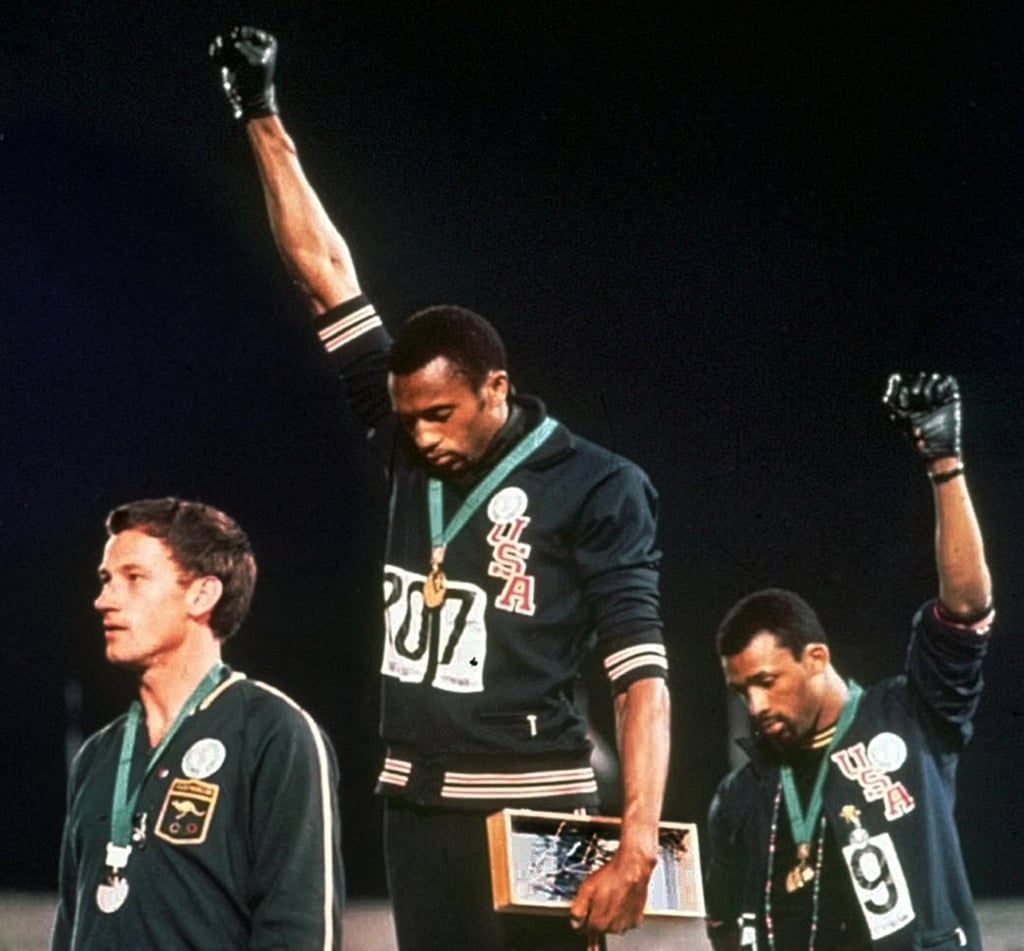Opinion | Tokyo 2020: IOC protest ban flies in the face of Olympic spirit as protesting becomes a way of life
- Rule 50 states athletes are not allowed to display any political messaging, signs, armbands, or raise fists or kneel, and will be subject to disciplinary action
- In censoring athletes, the IOC is telling them to leave politics at home during a time when politics is invading living rooms across the planet

Tommie Smith and John Carlos’ black-gloved raised fists in 1968 has become one of the most iconic images of the modern era. Two African-American athletes, standing tall in first and third on the podium after the 200 metre sprint: heads down, arms raised in silence, no shoes.
The duo were ostracised for their Black Power salutes, dragged through the mud in the press upon returning home for what many believed was the ultimate crime – showing defiance against a person’s own country as the flag waved in the wind behind. As The Star-Spangled Banner played in the Olympic Stadium in Mexico City that night, the two went from virtual unknowns to household names across the Western world in the blink of an eye.
Cast largely as villains by the general public in the aftermath, the two are now recast as American heroes, standing tall against a host of issues including racism, inequality and a politicised government. What would transpire in the following decades: the Rodney King beating, Black Lives Matter and a general admission that the United States government and powers that be had actively conspired against the African-American community on multiple levels, and at multiple points in history, offered posthumous vindication for the two.
What the protest was, and has become, is an earmark within the annals of American history, two individuals standing up for what they believe in, willing to put their livelihoods on the line. There is no way Smith and Carlos, labelled “black-skinned storm troopers” by one nationally syndicated columnist, could not have known that they would receive constant abuse and death threats that would extend to their families, all taking place upon returning home. They did so regardless of the ramifications, knowing their gestures could be more important than themselves and part of something bigger – and they were right.

What the image provides us with in 2020 is a contextual snapshot of life in America in the 1960s during the Civil Rights Movement, that two athletes could be the fastest humans on the planet, but felt inclined enough to speak out so brazenly, and bravely, when they should have simply been enjoying their long-awaited moments in the sun. There is an argument to be made that the gestures themselves are in fact more famous than the entire 1968 Summer Olympics as a whole – and that Mexico City will largely be remembered for their two fists in the air.
The International Olympic Committee’s recent guidelines released under Rule 50, in which they purport to be “fully supportive of freedom of expression”, language they use in the official preamble, are anything but. The three-page document is loaded with doublespeak and hypocrisy, and shows a governing body drastically out of touch with modern society. It is an ill-timed, tone deaf, and horribly misguided attempt to censor athletes at the peak of their celebrity, in a day and age when it is virtually impossible to fire up the internet and not be slammed with protest news.

